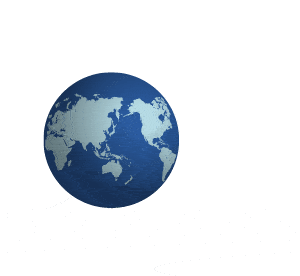© Organisation for Economic
Co-operation and Development
0

0

Share the page
The Organisation for Economic Co-operation and Development (OECD) is an international organisation that works to build better policies for better lives. Our goal is to shape policies that foster prosperity, equality, opportunity and well-being for all.
Brochure
All Testimonials

Commemoration of the 60th anniversary of the signing of the OECD Convention
14 December 2020

The OECD Ministerial Council Meeting (MCM), chaired by the United States with Korea and Luxembourg as Vice-Chairs, gathers Leaders and Ministers under the theme of “Shared Values: Building a Green and Inclusive Future”. On this occasion, Members have adopted a new Vision Statement to guide the Organisation for the upcoming decade.
ENHANCING WELL-BEING AND INCLUSIVENESS
Improving people's well-being of people is what originally brought and continues to bring countries together across the world to be part of the OECD. Over the past 10 years in particular, we have helped to place issues relating to well-being and inequalities of income and opportunities high on the international agenda.
> DISCOVER MORE ON THE TIMELINE
> DISCOVER MORE ON THE TIMELINE
BUILDING FAIRER SOCIETIES THROUGH TAX CO-OPERATION
Over the past decade, the OECD has been playing a central role in supporting international dialogue and exchange on tax policy. This global fight has been one of the major success stories of international co-operation in recent years.
> DISCOVER MORE ON THE TIMELINE
> DISCOVER MORE ON THE TIMELINE
HARNESSING DIGITAL TRANSFORMATION
The OECD has provided key insights and support for countries to grasp the implications of digital transformation and new technologies, helping them to anticipate and respond to the rapidly changing digital landscape.
> DISCOVER MORE ON THE TIMELINE
> DISCOVER MORE ON THE TIMELINE
Discover the full timeline






The forerunner of the OECD was the Organisation for European Economic Co-operation (OEEC), which was formed to administer American and Canadian aid under the Marshall Plan for the reconstruction of Europe after World War II.
The Convention transforming the OEEC into the OECD was signed at the Chateau de la Muette in Paris on 14 December 1960 and entered into force on 30 September 1961.
Since then, the OECD's vocation has been to deliver greater well-being worldwide by advising governments on policies that support resilient, inclusive and sustainable growth. Through evidence-based policy analysis and recommendations, standards and global policy networks, including close collaboration with the G7 and the G20, the OECD has helped advance reforms and multilateral solutions to global challenges. These span the public policy horizon, from the polluter pays principle, which the OECD developed in the 1970s, to PISA in education, not to mention tax transparency and artificial intelligence. Throughout its history, the OECD has striven to become more global, more inclusive and more relevant.


This year, we the Members, with the European Union fully participating, celebrate the 60th anniversary of the foundation of the OECD. We form a like-minded community, committed to the preservation of individual liberty, the values of democracy, the rule of law and the defence of human rights. We believe in open and transparent market economy principles. Guided by our Convention, we will pursue sustainable economic growth and employment, while protecting our planet. Our shared endeavour is to end poverty, to tackle inequalities and to leave no one behind. We want to improve the lives and prospects of everyone, inside and outside the OECD. As a global pathfinder, the OECD will therefore continue to develop evidence-based analysis that helps generate innovative policies and standards to build stronger, more sustainable and more inclusive economies, inspiring trust and confidence for resilient, responsive and healthy societies.
our objective to help governments design and implement better policies so that people may enjoy better lives.
The OECD’s raison d’etre is to be a pathfinder, a policy advisor and standard setter on a global scale. A ‘do’ tank. We have fulfilled this role by building on our fundamental values: objectivity, openness, boldness, and integrity. Over the past 60 years, the OECD has been a catalyst for change in many aspects of public policy. We encourage debate, provide evidence and promote a shared understanding of critical global issues. Our analyses and policy recommendations are independent and evidence-based, making our work valuable for OECD Member and Partner countries.
The last 10 years have been a decade of transformation for the OECD. Building on its core strengths, the Organisation has expanded its reach, relevance and impact." (...)
"The world has changed greatly since the Organisation for Economic Co-operation and Development (OECD) was created 60 years ago, and the OECD has changed with it. But one thing has remained constant:

Discover the full statement